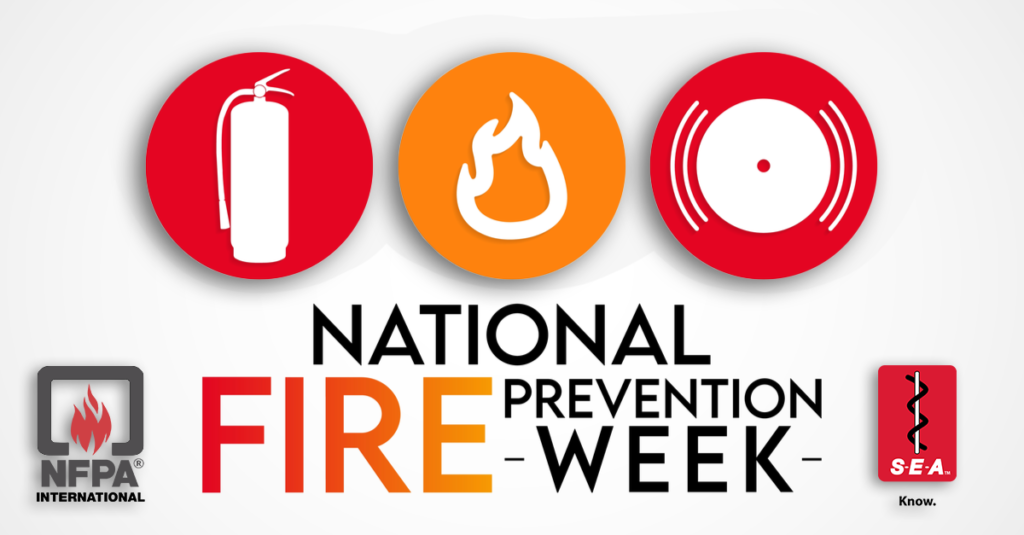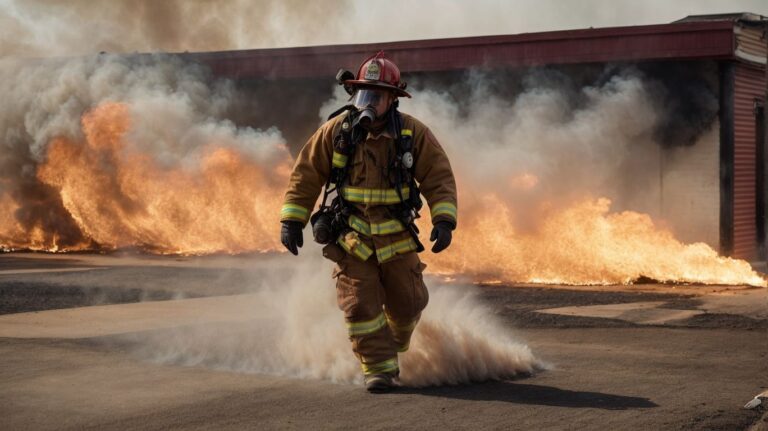Fire Prevention Week: Each October, as the leaves change and temperatures drop, a vital public observance takes place across the United States—Fire Prevention Week. Sponsored by the National Fire Protection Association (NFPA) since 1922, Fire Prevention Week is the longest-running public health observance in the country.
Its roots run deep, intertwined with the tragic lessons learned from one of the most devastating fires in American history: the Great Chicago Fire of 1871. The event serves as a reminder of the destructive power of fire and the importance of education and preparedness in preventing future tragedies.
In 1925, President Calvin Coolidge officially proclaimed Fire Prevention Week as a national observance, underscoring its significance. Since then, it has been a time when children, adults, and educators come together to learn life-saving fire safety tips. Firefighters and other safety professionals take on the critical role of educating the public, aiming to reduce the number of injuries, deaths, and property damage caused by fires.
Click Here To Learn More About Fire Prevention Week!
The Great Chicago Fire: A Tragic Lesson
Fire Prevention Week is observed each year during the week of October 9th to commemorate the anniversary of the Great Chicago Fire. This fire, which began on October 8, 1871, is remembered not only for its destruction but also for the lessons it taught about fire safety and prevention. The fire raged for two days, fueled by dry conditions, strong winds, and the wooden structures that made up most of the city.
By the time the flames were extinguished, over 250 people had lost their lives, 100,000 were left homeless, and more than 17,400 buildings were destroyed. The fire consumed over 2,000 acres of land, leaving a scar on Chicago that would take years to heal.
While the exact cause of the fire remains unknown, the disaster highlighted the vulnerabilities of cities that were growing rapidly without adequate fire safety measures in place. Wooden structures, overcrowding, and limited access to water contributed to the fire’s intensity and spread. In the aftermath, Chicago and other cities around the country began to rethink their building codes, fire response strategies, and public safety education efforts.
The Importance of Fire Prevention Week
Fire Prevention Week has evolved over the decades, adapting to new technologies, building materials, and modern risks. However, the core message has remained consistent: fires are preventable, and education is key to saving lives. During this week, fire departments and safety organizations across the nation host events, share resources and engage with communities to teach fire prevention and response strategies.
For children, Fire Prevention Week often includes activities like visiting local fire stations, learning how to stop, drop, and roll, and practicing home fire drills. These hands-on experiences are designed to teach kids how to react quickly and calmly in the event of a fire. Firefighters and educators emphasize the importance of having a fire escape plan at home, knowing two ways out of every room, and never re-entering a burning building.
For adults, the focus may shift to ensuring that homes are equipped with working smoke detectors, developing a family fire escape plan, and understanding the role of fire extinguishers. Many people are also reminded to check the batteries in their smoke detectors during Fire Prevention Week, as these devices are one of the most critical tools in preventing fire-related injuries and fatalities.
Fire Safety Tips for Every Household
One of the most valuable aspects of Fire Prevention Week is the practical advice it provides. Here are some key fire safety tips that everyone should know:
- Install and Maintain Smoke Alarms: Smoke alarms are your first line of defense in a fire. Make sure to install them in every bedroom, outside each sleeping area, and on every level of your home. Test alarms monthly, and replace the batteries at least once a year.
- Create a Fire Escape Plan: Every household should have a fire escape plan that includes two ways out of every room and a designated meeting place outside. Practice this plan with all family members, including children, so that everyone knows what to do in an emergency.
- Use Space Heaters Safely: If you use space heaters, make sure they are placed on a flat, solid surface at least three feet away from anything that can burn. Always turn off space heaters when you leave the room or go to bed.
- Cook with Care: Cooking fires are a leading cause of home fires. Never leave food unattended on the stove, and keep flammable items like towels and paper products away from the cooking area. If a grease fire starts, smother the flames with a lid—never use water.
- Be Mindful of Electrical Safety: Avoid overloading electrical outlets, and use extension cords sparingly. Check cords for fraying or wear, and replace damaged ones immediately.
- Keep Matches and Lighters Away from Children: Store these items in a locked cabinet or out of reach of young children. Educate children about the dangers of playing with fire.
The Role of Firefighters in Fire Prevention
Firefighters play a crucial role in Fire Prevention Week, serving not only as first responders but also as educators. Many fire departments open their doors to the public during this week, offering tours, demonstrations, and hands-on activities. Firefighters explain how their equipment works, demonstrate fire suppression techniques and teach community members how to use fire extinguishers.
These public education efforts can make a significant difference. Studies have shown that communities with strong fire prevention education programs experience fewer fire-related injuries and fatalities. The combination of knowledge, preparation, and vigilance can help prevent fires from happening in the first place, or mitigate the damage when they do occur.
Looking Ahead
As we move further into the 21st century, the need for fire prevention education remains as important as ever. With new challenges like wildfires, electrical hazards, and modern building materials, the scope of Fire Prevention Week continues to expand. However, the message remains clear: fire safety is everyone’s responsibility.
This October, take the time to participate in Fire Prevention Week activities in your community. Whether you attend a fire department open house, review your family’s escape plan, or simply check your smoke alarms, these small actions can have a big impact. Fire Prevention Week is not just about remembering the past—it’s about building a safer future for all.






